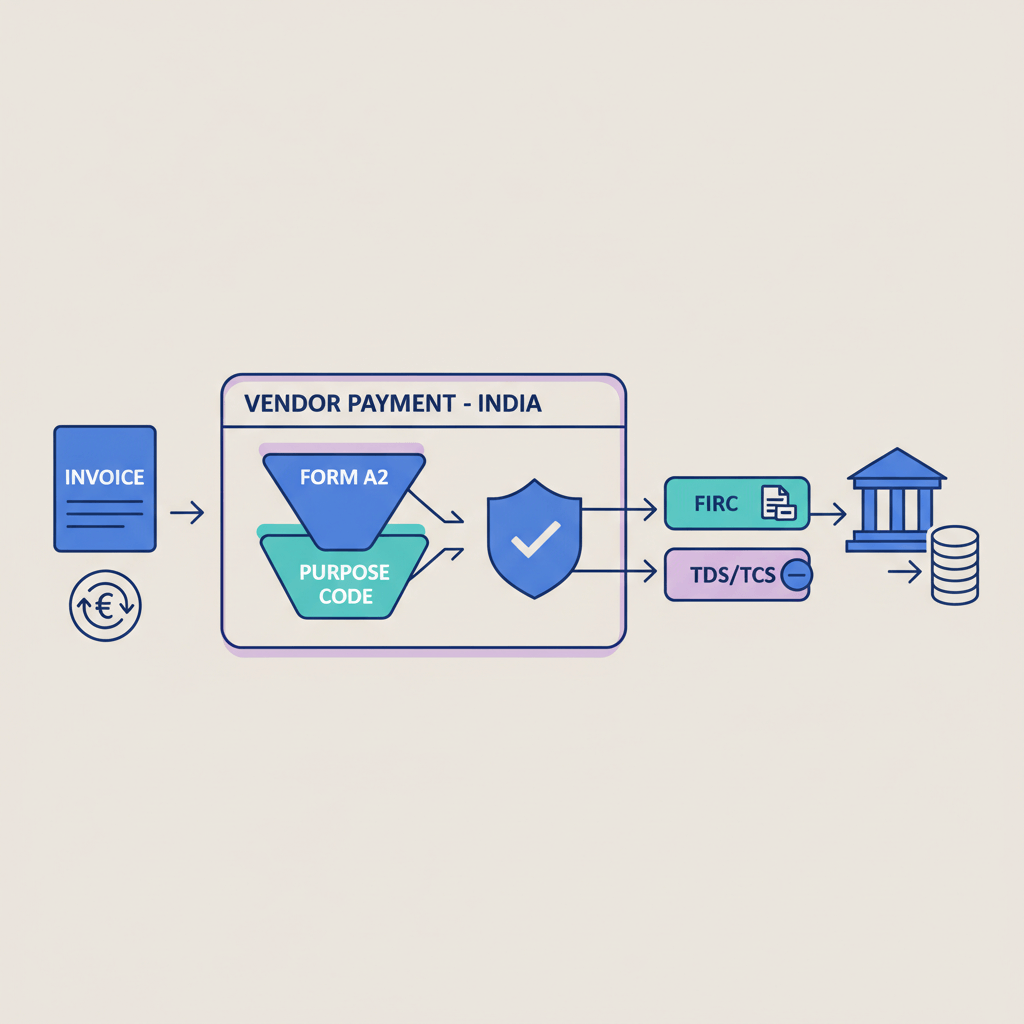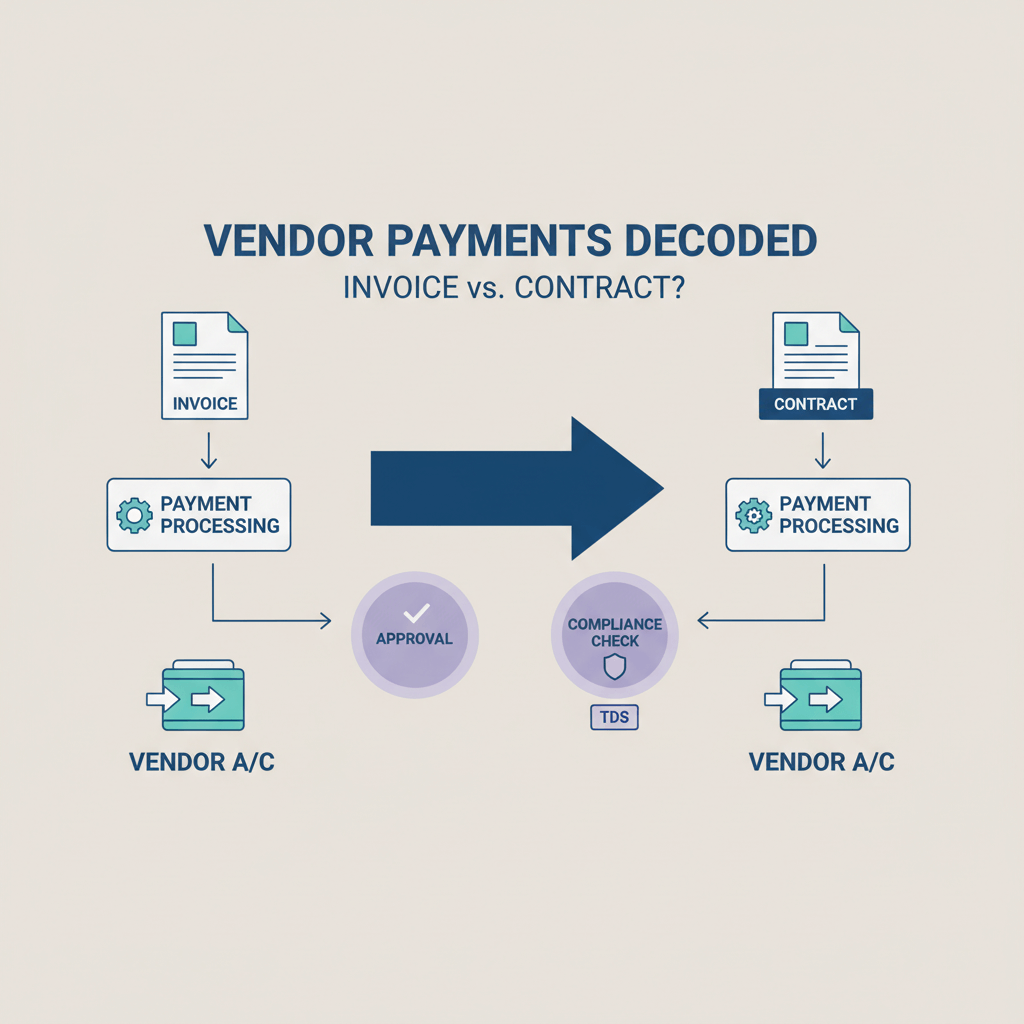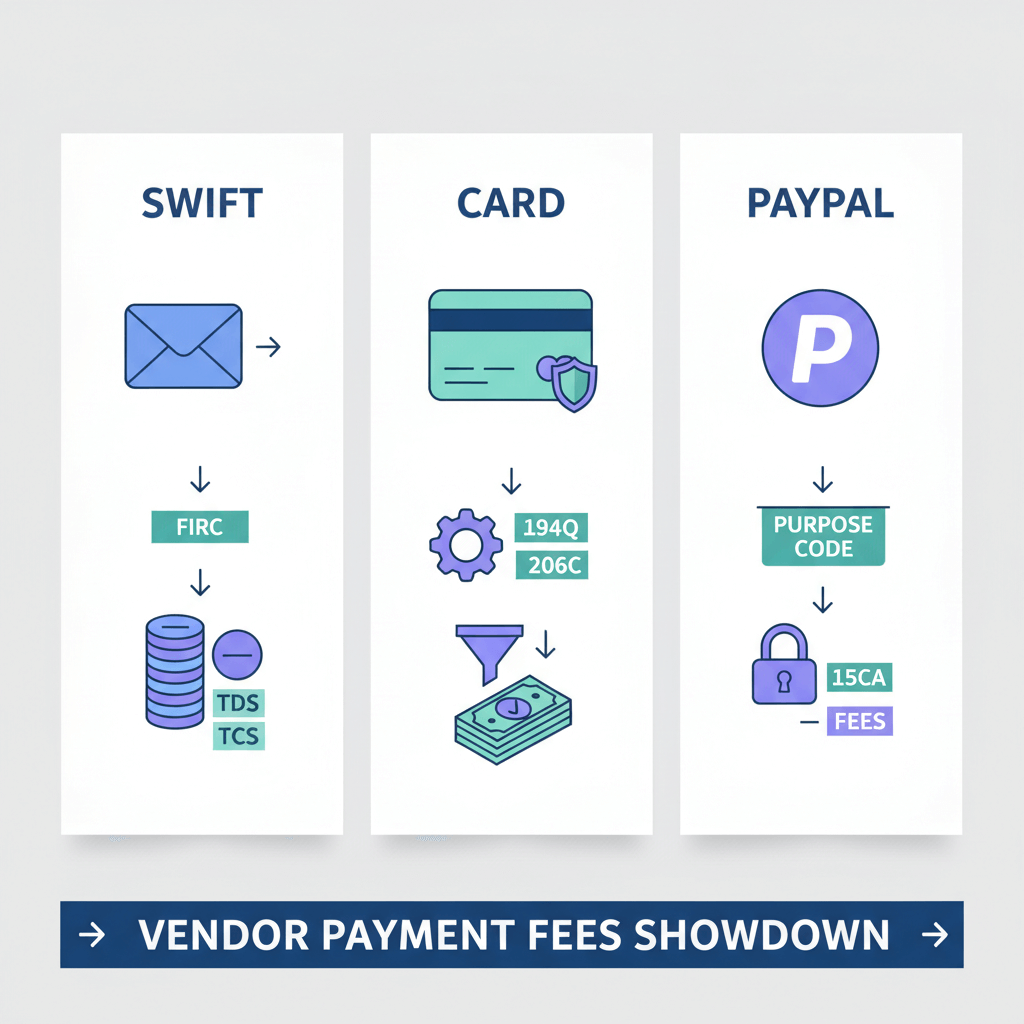Razorpay is one of India’s leading fintech platforms for businesses.
It offers solutions to accept payments, make payouts, manage business banking, automate payroll, and access loans. But when it comes to sending and receiving international money, businesses are searching for.
While it helps Indian businesses accept payments from overseas customers, it doesn’t provide full-fledged cross-border solutions and the charges aren’t suitable for all types of businesses. If your business deals with international clients, vendors, or partners, you can explore Razorpay’s alternatives relevant products for global money movement and suggest the best alternatives.
Razorpay Products at a Glance
- Accept Payments – Payment Gateway, Payment Links, Payment Pages, POS.
- Make Payouts – Payout APIs, Payout Links, Source-to-Pay.
- Start Business Banking – Current Account, Escrow Account, Forex Management.
- Automate Payroll – Payroll for startups, CAs, and enterprises.
- Get Credit & Loans – Instant settlements, capital solutions.
Out of these, only a few directly help with international transactions:
- Multi-Currency Accounts
- Payment Gateway
- Payment Links
Let’s discuss each of the above product and explore the best Razorpay alternatives.
1. RazorPay's Multi-Currency Accounts (Global Bank Accounts)
What it does:
Provides virtual global bank accounts in USD, EUR, GBP, etc., to receive funds abroad.
Pros:
- Lets exporters accept international payments directly in foreign currencies.
- Claims to save up to 75% on bank fees.
- Useful for platforms like Upwork, Toptal, Shopify, etc.
Cons:
- Not a true foreign account — funds are eventually converted and settled in INR.
- Conversion fees can be high compared to Karbon and Wise’s mid-market rate.
Best Alternatives to Razorpay Multi-Currency Accounts
Karbon: Multi-Currency Solution for Indian Exporters & Agencies
Karbon is built for Indian service exporters, IT agencies, and SaaS startups that frequently receive international payments. Unlike Razorpay’s pseudo “global accounts” that convert all funds to INR, Karbon provides real foreign currency receiving accounts with lower markup rates.
Key Features:
- Virtual accounts in USD, GBP, EUR for direct client payments.
- Auto-FIRC generation and RBI compliance support for exporters.
- Settlements in INR at lower FX conversion rates compared to banks or Razorpay.
- India-based support team familiar with exporters’ needs.
Pros:
- Lower FX markup (40–60p vs 2–3% at banks/Razorpay), saving on every transaction.
- Faster settlements in INR than Razorpay or PayPal.
- Transparent pricing, no hidden compliance/documentation charges.
- Strong focus on SMBs and agencies instead of large enterprises.
Cons:
- Doesn’t yet support outward remittances (only inward).
- Coverage limited to major currencies (USD, GBP, EUR).
- Newer compared to global players like Wise, so less recognized outside India.
Wise Business: Multi-Currency Accounts with Global Reach
Wise (formerly TransferWise) is a leading alternative when you need real foreign accounts, not just INR-settled ones. It allows businesses to hold, send, and receive payments in 40+ currencies at the mid-market exchange rate.
Key Features:
- Multi-currency account with local bank details in USD, GBP, EUR, AUD, and more.
- Payments can be held in the original currency without forced conversion.
- Transfers use the mid-market rate with clear, upfront fees.
- Debit card available for spending in 175+ countries.
Pros:
- No hidden markups — transparent conversion fees (~0.6%–1.8%).
- Supports both inward and outward payments, unlike Razorpay.
- Perfect for businesses that pay global vendors in the same currency.
- Trusted worldwide by freelancers, startups, and SMEs.
Cons:
- FIRC documentation costs extra (~$2.50 per payment).
- Transaction limits apply (e.g., $10,000 per invoice for Indian users).
- Customer support is global, not India-specific, which can mean slower issue resolution.
Skydo: Freelancer-Friendly Global Accounts with Compliance Support
Skydo is a new-age cross-border payment platform designed for Indian freelancers and solopreneurs. It provides virtual accounts in USD, GBP, and EUR with an emphasis on auto-compliance and lower FX costs, making it a lighter and more affordable Razorpay alternative.
Key Features:
- Global virtual accounts in USD, EUR, GBP.
- Auto-FIRC generation to meet RBI compliance without extra hassle.
- Direct settlements to Indian bank accounts in INR.
- Transparent, low transaction fees compared to PayPal or Razorpay.
Pros:
- Freelancer-first focus — quick onboarding and easy invoicing tools.
- Auto-FIRC at no extra charge (unlike Wise which charges per FIRC).
- Simpler pricing model with lower FX spreads.
- India-based customer service.
Cons:
- Designed mainly for freelancers/solopreneurs, not larger agencies.
- Fewer supported currencies compared to Wise.
- Limited ecosystem integrations (vs. Stripe/PayPal).
2. International Payment Gateway
What it does:
Allows businesses to accept payments from international customers via cards, Apple Pay, PayPal, and other local/global methods.
Pros:
- Accepts global cards + Apple Pay for higher conversions.
- Intelligent routing and Smart Retry boost success rates (up to 10% higher).
- Plugins available for Shopify, Magento, etc.
- AI-powered fraud detection, chargeback protection, and dispute support.
Cons:
- Still dependent on Razorpay’s approval process for international payments (some merchants face delays).
- Settlement timelines can be longer compared to other global players.
- Limited currency holding — funds are settled only in INR, not multi-currency.
Best Alternatives to Razorpay’s International Payment Gateway
When it comes to accepting payments from international customers, Razorpay’s gateway does the basics well — cards, wallets, Apple Pay, and PayPal integrations. But the limitations like INR-only settlements, approval delays, and slower settlements push many businesses to look for stronger, globally tested alternatives.
Here are three of the most reliable options — each one suited for different business needs.
1) Stripe: Developer-First, Global Payment Platform
Best when: You need a scalable, programmable payment solution with broad currency and local-method support.
What it is:
Stripe is one of the most advanced payment platforms globally, widely used by startups, SaaS companies, and marketplaces. It offers robust APIs, hosted checkout options, and world-class fraud detection tools.
Key features
- Accept payments in 135+ currencies from nearly every country worldwide.
- Ready-to-use hosted checkout pages and payment links, so you can go live quickly without much coding.
- “Radar” — Stripe’s AI-driven fraud detection system, which adapts in real-time and reduces false declines.
- Broad support for local payment methods and adaptive pricing, displaying the right currency and payment method for each customer.
Why it’s a strong alternative to Razorpay Gateway
Razorpay does let you accept international cards, but Stripe goes further by offering localized methods customers actually use (like SEPA, iDEAL, Alipay). This drastically improves conversion rates. Stripe’s fraud prevention system is also much stronger and better trained on international traffic, which helps reduce chargebacks. Plus, if your business is SaaS or marketplace-based, Stripe’s APIs scale smoothly for features like recurring billing and split settlements.
Pros
- Industry-leading fraud prevention with deep analytics.
- Rich localization options (languages, currencies, local methods).
- Hosted checkout flows for quick deployment, but advanced APIs for complex needs.
Cons
- Requires more developer effort to unlock its full potential.
- Pricing for local methods can vary; enterprise discounts are negotiable.
- For very small merchants, onboarding can feel more complex than Razorpay.
Quick migration tip: Start with Stripe Checkout to test global payment flows, and enable Radar’s default settings to protect against fraud.
2) PayPal: Trusted, Low-Friction Checkout for Global Buyers
Best when: Buyer trust and quick, frictionless checkout are more important than minimizing FX fees.
What it is:
PayPal is one of the most recognized global wallets, available in 200+ markets. Many customers already have PayPal accounts, making it a low-friction option to boost international conversions.
Key features
- Global reach in over 200 countries with widespread consumer trust.
- PayPal Checkout and payment buttons that are easy to integrate and instantly recognizable to customers.
- Business tools like payouts, invoicing, and subscription management.
- New initiatives like “PayPal World” aimed at expanding cross-border interoperability.
Why PayPal is a strong alternative to Razorpay Gateway
The biggest advantage of PayPal is buyer trust. Customers are more likely to complete a purchase when they see PayPal at checkout, especially in Western markets. Unlike Razorpay, where some global buyers hesitate with INR-only settlement, PayPal gives them a familiar wallet they already use. This results in fewer abandoned carts and faster adoption, especially for freelancers, online shops, and marketplaces.
Pros
- Extremely easy for end customers, boosting checkout success rates.
- Strong buyer-side protections, which increase trust and willingness to pay.
- Quick setup — no heavy technical integration required.
Cons
- Higher fees and FX markups compared to specialist FX providers.
- Dispute resolution often favors buyers, which can be tough on merchants.
- Less flexible for developers compared to Stripe.
Quick migration tip: Offer PayPal alongside another gateway. This way, you capture customers who insist on PayPal without depending entirely on it.
3) Adyen: Enterprise Gateway Focused on Optimized Global Acceptance
Best when: You process large volumes and need optimized routing for lower costs and higher approval rates.
What it is:
Adyen is a payment platform used by global enterprises. It connects directly to card networks and local payment schemes, offering AI-powered routing and deep analytics to reduce costs and maximize acceptance.
Key features
- Intelligent Payment Routing: chooses the best route for each transaction to improve authorization and reduce costs.
- Direct acquiring relationships with major card networks and support for dozens of local methods.
- Strong enterprise reporting, reconciliation, and risk management tools.
Why it’s a strong alternative to Razorpay Gateway
For businesses processing thousands of international transactions, optimizing acceptance rates can save significant money. Adyen’s smart routing ensures fewer declines and lower processing costs. Unlike Razorpay, which is more India-focused, Adyen is built for businesses with global scale, offering a single integration for all major local methods worldwide.
Pros
- Higher authorization rates and cost savings through optimized routing.
- Consolidated reporting and reconciliation for high-volume merchants.
- Strong local-method support with direct acquiring, which reduces intermediaries.
Cons
- Best suited for medium to large enterprises — not freelancers or small startups.
- Longer onboarding and contract negotiations compared to Razorpay or PayPal.
- More complex setup for merchants with very small transaction volumes.
Quick migration tip: If you’re scaling internationally, start with Adyen in your top markets and measure the lift in authorization rates before expanding further.
How to Pick the Right Alternative
- Stripe: Choose this if you want developer control, advanced fraud tools, and broad local method coverage. Ideal for SaaS, marketplaces, and platforms.
- PayPal: Choose this if customer trust and quick rollout matter more than FX savings. Perfect for freelancers, small shops, and marketplaces.
- Adyen: Choose this if you’re processing large international volumes and need enterprise-level optimization in routing and reporting.
3. Payment Links & Pages (for international customers)
What it does:
Businesses can send links or set up branded pages to collect payments from global customers.
Pros:
- Quick to set up; no coding needed.
- Works across email, WhatsApp, and social media.
- Supports one-time payments and subscriptions.
Cons:
- Payments still get settled only in INR, no foreign currency holding.
- Heavier fees compared to receiving funds directly into a foreign account (e.g., Wise Business).
- Limited customization vs. global platforms offering more branded checkout flows.
Alternatives to Razorpay's Link Payment
Razorpay’s Payment Links and Payment Pages make it easy to collect money from global customers without coding. But Razorpay converts foreign payments into INR at settlement and does not let you hold many foreign balances.
Below are thorough, mapped alternatives. Each shows the exact features that replace or improve on Razorpay Links and Pages, plus pros, cons, and quick migration tips.
Karbon: Cheapest International Payment Link Solution In India
What Karbon does?
Karbon offers virtual local receiving accounts and payment links built for Indian exporters and agencies. It emphasizes low FX spreads, fast INR settlement, and built-in compliance for inward receipts.
Features mapped to Razorpay Payment Links/Pages
- Payment links and hosted pages: create shareable links and branded pages for clients, just like Razorpay Links and Pages.
- Local receiving accounts: provide USD, GBP, EUR and more bank details so clients pay locally. This removes SWIFT friction and lowers costs.
- Auto-FIRC and export workflow: automatic FIRC generation and export compliance tooling are tied to receipts. That replaces manual paperwork you would otherwise manage after a Razorpay receipt.
- Faster INR settlement: Karbon focuses on T+1 or T+2 INR crediting, reducing working capital lag compared to typical aggregator flows.
Why Karbon is a strong alternative
Karbon keeps the no-code link and page convenience you use with Razorpay. At the same time, it reduces FX cost and adds export compliance automation. If most of your revenue comes from export contracts, Karbon removes extra bank fees and paperwork that Razorpay’s automatic INR conversion might not avoid.
Pros
- Lower effective FX costs for inbound receipts
- Built-in export compliance (FIRC) tied to receipts
- Simple link-based collection with faster INR credit
Cons
- Primarily optimized for inbound receipts; outward treasury features are limited
- Currency coverage focuses on major pairs; very small currency markets may not be available
- Newer than some global players, so enterprise integrations may be fewer
PayPal: Best if buyer trust and instant, low-friction checkout matter most
What PayPal does?
PayPal provides payment links, hosted checkout pages, and smart buttons that customers worldwide recognize. It is optimized for buyer familiarity and instant conversions.
Features mapped to Razorpay Payment Links/Pages
- Payment links and PayPal.Me: create and share links or QR codes the customer can pay immediately. This matches Razorpay’s no-code link capability.
- Hosted checkout and buttons: PayPal Checkout gives a branded, trusted flow that reduces cart abandonment. It also supports cards when buyers do not use PayPal wallets.
- Buyer protections and fraud tooling: built-in buyer protections increase trust, which helps conversion for international customers.
Why PayPal is a strong alternative?
Trust wins conversions. International buyers often prefer PayPal, so adding PayPal links and pages can immediately improve cross-border conversion. Minimal setup for sellers. You can use PayPal links or buttons without heavy development work, making it a fast replacement for Razorpay Pages when you need speed.
Pros
- Very high buyer trust and widely used payment flow
- Easy no-code links, QR codes, and embedded buttons
- Works across email, social, WhatsApp, and invoices
Cons
- Fees and FX markups are typically higher than specialist FX providers (reduces payout amounts for Indian recipients)
- Dispute resolution historically favors buyers, which raises chargeback risk for sellers
- Less control over exchange timing compared to holding in a true multi-currency account
Which to pick (practical rule of thumb)
- Choose Karbon if your priority is lower FX cost, export compliance automation, and fast INR settlement. Karbon keeps the link and page convenience while cutting conversion friction.
- Choose PayPal if your priority is buyer trust, easy adoption, and immediate conversion uplift. Use it alongside another provider to capture wallet-preferring buyers.










